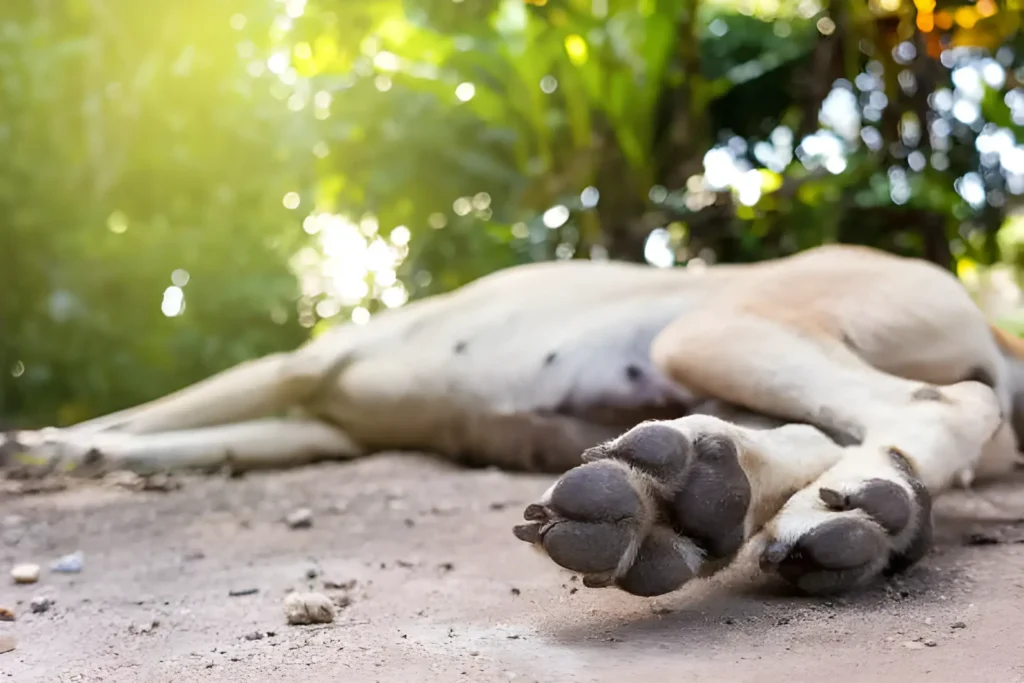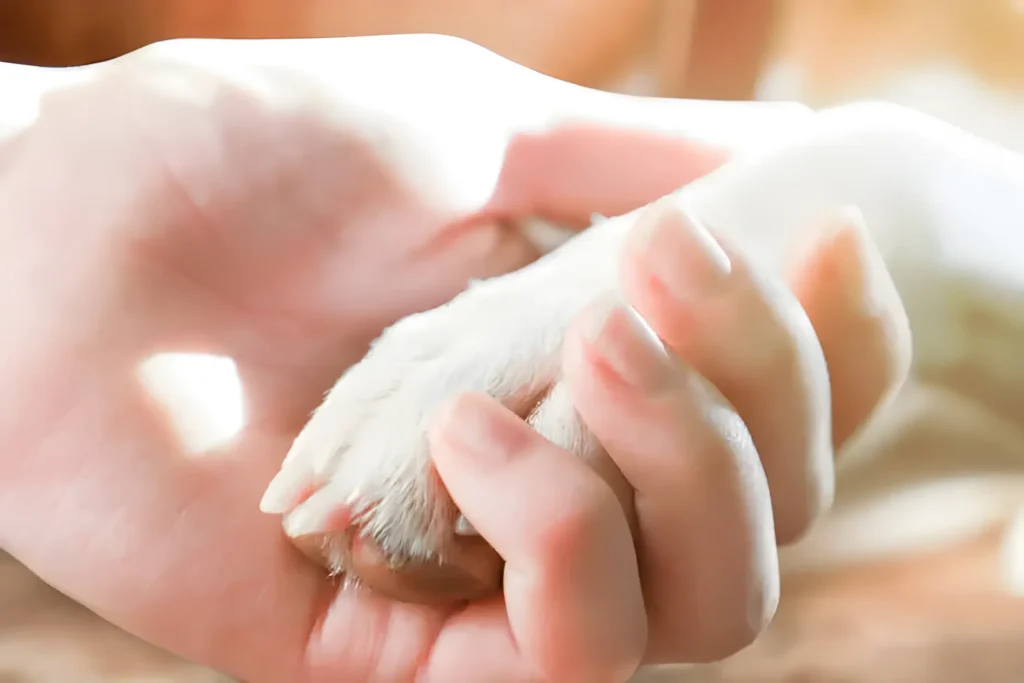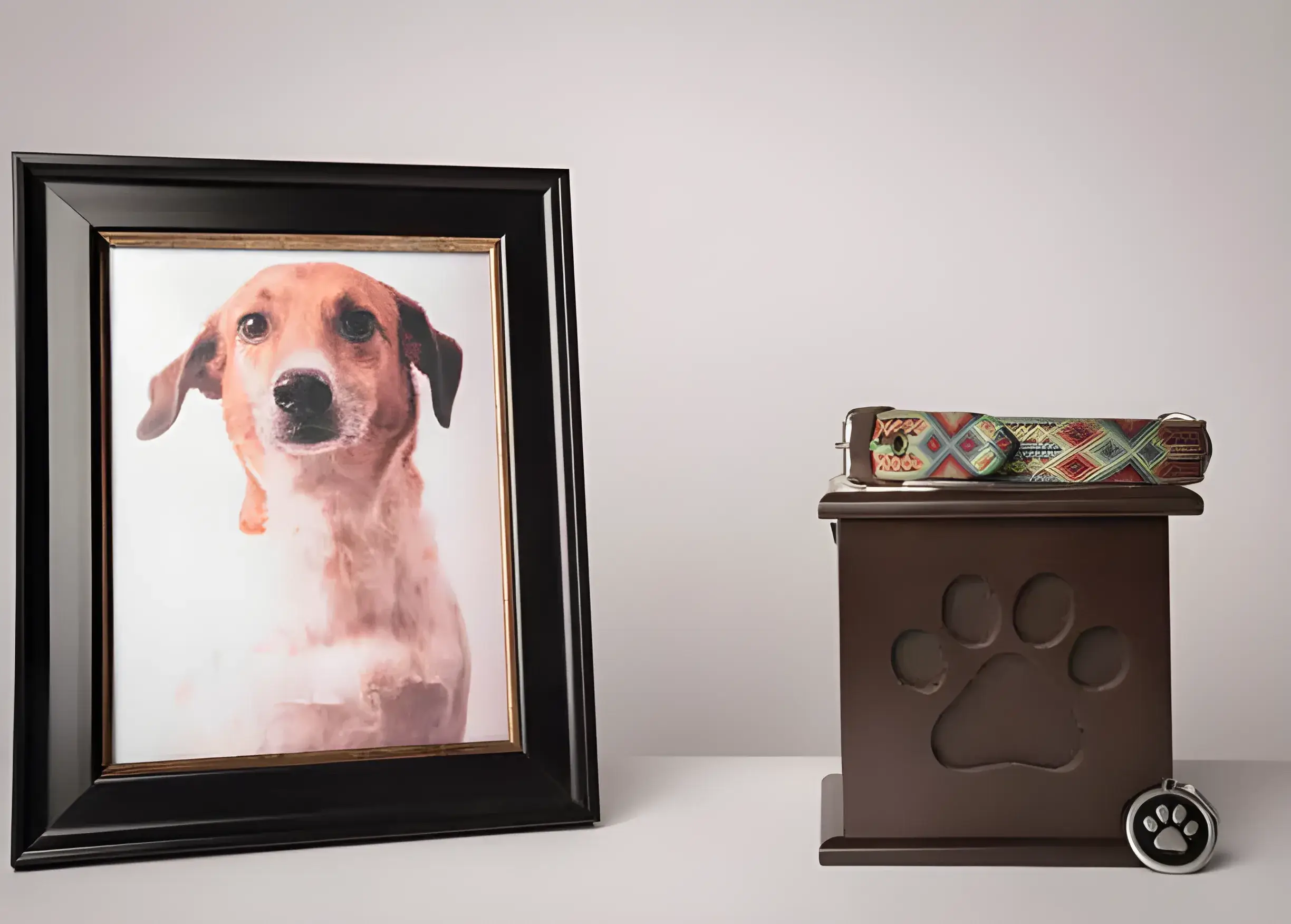Your beloved dog was a vibrant part of your life, and now they’re gone. The suddenness of this loss can be utterly devastating. You may feel shocked, confused, and heartbroken all at once. Please know that your feelings are entirely normal, and there are steps you can take to navigate this difficult time.
Immediate Actions
Contact Your Veterinarian: Even if the cause of death seems clear, it’s wise to alert your vet. They may offer guidance on handling your dog’s remains and support with emotional processing.
Decide on Aftercare: Choose between cremation or burial. Your vet may have recommendations or resources to assist with this decision.
Gently Inform Others: Tell children, family, or housemates about your dog’s passing in an age-appropriate and sensitive way. Other pets in the house may sense the loss as well.
Coping with the Shock and Grief
Acknowledge Your Emotions: The sudden loss of your dog can bring on a whirlwind of feelings – sadness, shock, confusion, even anger. Allow yourself to experience these emotions without judgment.
Prioritize Your Well-being: Grief takes a toll both mentally and physically. Make sure you’re eating nourishing foods, getting some rest, and finding ways to move your body, even if it’s just a short walk.
Reach Out for Support: Don’t face this loss alone. Talk to understanding friends and family, or seek the comfort of a pet loss support group where your experiences will be truly understood.
Understanding Potential Causes

While the suddenness is what makes this loss so traumatic, here are some common causes of unexpected death in dogs:
Internal Bleeding: This may be caused by trauma, tumors, or bleeding disorders.
Gastric Dilatation-Volvulus (GDV or Bloat): A life-threatening condition where a dog’s stomach twists. Large breeds and deep-chested dogs are more prone.
Heart Disease: Underlying heart problems can sometimes lead to sudden death.
Poisoning or Toxic Ingestion: Household items and certain plants can be fatal to dogs.
Honoring Your Pet’s Memory
Create a Memorial: Plant a tree, create a photo album, or write a tribute to your beloved companion.
Share Memories: Talk about your dog with loved ones. Remembering the good times can be healing.
Consider a Donation: Donate to an animal shelter or rescue in your dog’s name.
When to Seek Professional Help
If Grief Feels Overwhelming: Sometimes, the sadness becomes too much to bear, or interferes with your ability to function day-to-day. If this happens, don’t hesitate to seek help from a therapist or counselor who specializes in pet loss. They can offer tools and guidance to help you navigate this difficult time.
Myths and Misconceptions

Myth: Old dogs always die peacefully in their sleep.
- Fact: Sudden death can occur at any age, even in seemingly healthy dogs.
Myth: If my dog seemed fine, it couldn’t be a serious illness.
- Fact: Some illnesses progress quickly or may not have outward symptoms. Regular veterinary checkups are essential for preventive care.
Supporting Someone Grieving a Pet Loss:
Offer a listening ear: Be present and let them express their emotions without trying to fix or minimize their pain. Simple phrases like “I’m so sorry for your loss” or “I’m here for you” can be meaningful.
Extend practical help: Offer specific assistance like running errands, cooking meals, or caring for other pets. This can ease the burden during a difficult time.
Respect their process: Grief is deeply personal. Avoid saying things like “It’s time to move on” or comparing their loss to something else. Let them grieve in their own way.
When You’re Ready: Considering a New Pet
Remember, this is a deeply personal decision. There’s no set timeframe for when you might be ready to consider another pet.
Questions for reflection:
- Have I fully processed the loss of my previous dog?
- What kind of lifestyle do I have now? Would a new pet fit in well?
- Am I prepared for the commitment of caring for another animal?
Stories of Hope and Healing
“After losing my dog Max to a sudden illness, I felt utterly lost. But joining a pet loss support group helped me connect with others who understood my pain. Sharing memories and stories about Max brought a lot of comfort.” – Emma F.
“It took me a long time to consider another dog after my sweet Molly passed away. But adopting Buddy has brought joy back into my life. He’ll never replace Molly, but he’s a reminder that love and new beginnings are always possible.” – John L.
Conclusion
Losing a dog suddenly is a deeply painful experience. There’s no single “right” way to navigate this grief. Be kind to yourself as you process this loss. With time, support, and self-care, the pain will gradually lessen, and the fond memories of your cherished companion will bring you comfort.
The photo featured below the post headline is Credit: Claudia Luna/istockphoto
I hope you find this post helpful and informative. If Yes’ feel free to share it with your friends!
Frequently Asked Question
Is it normal to feel guilty when my dog dies suddenly?
Guilt is a very common reaction. Remember, you gave your dog the best possible life, and sudden health issues are often beyond our control. It’s important to be kind to yourself.
How do I explain my dog’s death to my child?
Be honest, but use age-appropriate language. Focus on celebrating your dog’s life, memories, and the love you shared. Books and resources designed for children can help with this difficult conversation.
Will my other pets grieve too?
Animals can sense loss. Provide them with extra attention, reassurance, and maintain their routines as much as possible.
How can I cope with nightmares after my dog’s sudden death?
Nightmares and sleep disturbances are common during grief. Practice calming techniques before bed (reading, meditation), talk to your doctor, and reach out to a support group if needed.
How do I know if my grief needs additional support?
If you find that grief significantly disrupts your ability to function in everyday life, feel an overwhelming sense of despair, or have thoughts of harming yourself, it’s essential to seek help from a mental health professional. They can offer guidance, coping mechanisms, and additional support during this difficult time. You can also find help by contacting crisis hotlines or support groups specializing in pet loss.
Where can I find a pet loss support group in my area?
Your veterinarian is a great place to start for referrals. Animal shelters and online resources like the Association for Pet Loss and Bereavement (https://aplb.org/) can also offer listings of support groups, both locally and online.
Is it disrespectful to get a new dog soon after losing one?
There’s no right or wrong timeline. Honor your own feelings and consider if you’re emotionally prepared and have the time and resources for a new pet.
How do I know if my dog died from poisoning?
Look out for unusual symptoms like vomiting, diarrhea, tremors, or seizures. If you suspect poisoning, contact your vet or a pet poison hotline immediately.
Are certain dog breeds more prone to sudden death?
Yes, some breeds are predisposed to specific health conditions. For example, large, deep-chested dogs are more at risk of bloat. Research your dog’s breed to be aware of potential risks.
My dog died suddenly at home – what should I do with the body?
Contact your veterinarian for guidance. They may offer advice on how to handle your pet’s remains respectfully and connect you with cremation or burial services.
Can a dog die suddenly from stress or a broken heart?
While not always the primary cause, extreme stress or emotional trauma can compound existing health issues in dogs.

